Comparison Worksheets for Ages 3-7
19 filtered results
-
From - To
Discover our engaging comparison worksheets designed for children ages 3-7! These worksheets help young learners enhance their understanding of comparing objects, numbers, and sizes through fun and interactive activities. Suitable for preschool and early elementary students, our resources promote critical thinking skills as kids identify similarities and differences. With colorful illustrations and age-appropriate exercises, children will enjoy learning concepts like "more than," "less than," and "equal to." These printable worksheets can easily be integrated into homeschooling or classroom settings, supporting your child’s educational journey. Foster confidence in math and develop foundational skills with our easy-to-use comparison worksheets!
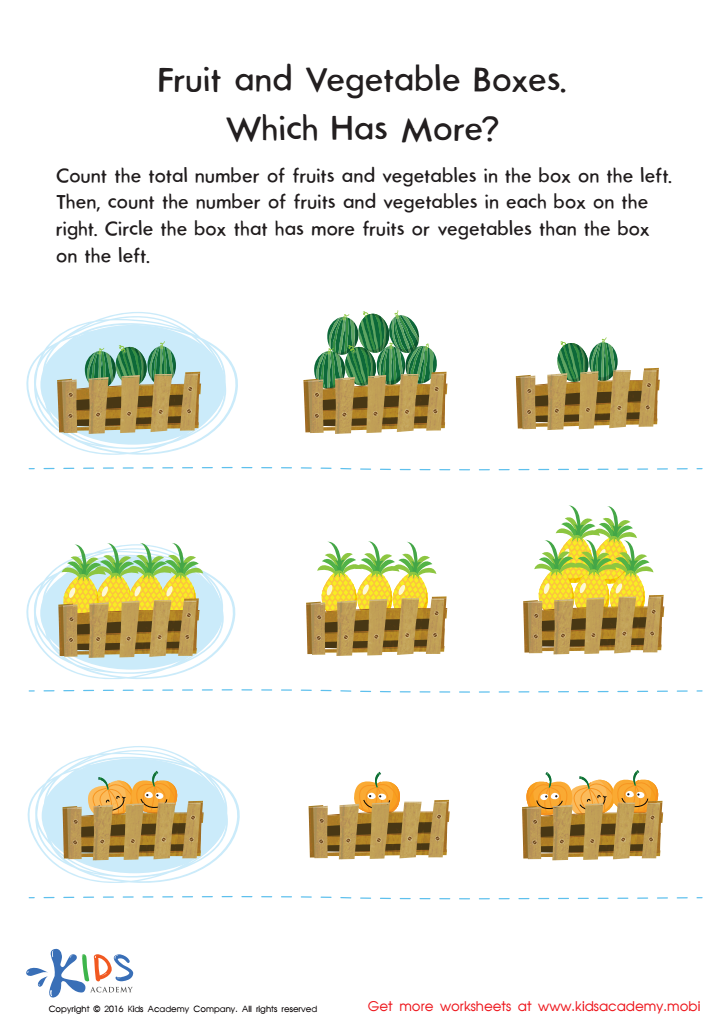

Which Has More? Size Worksheet
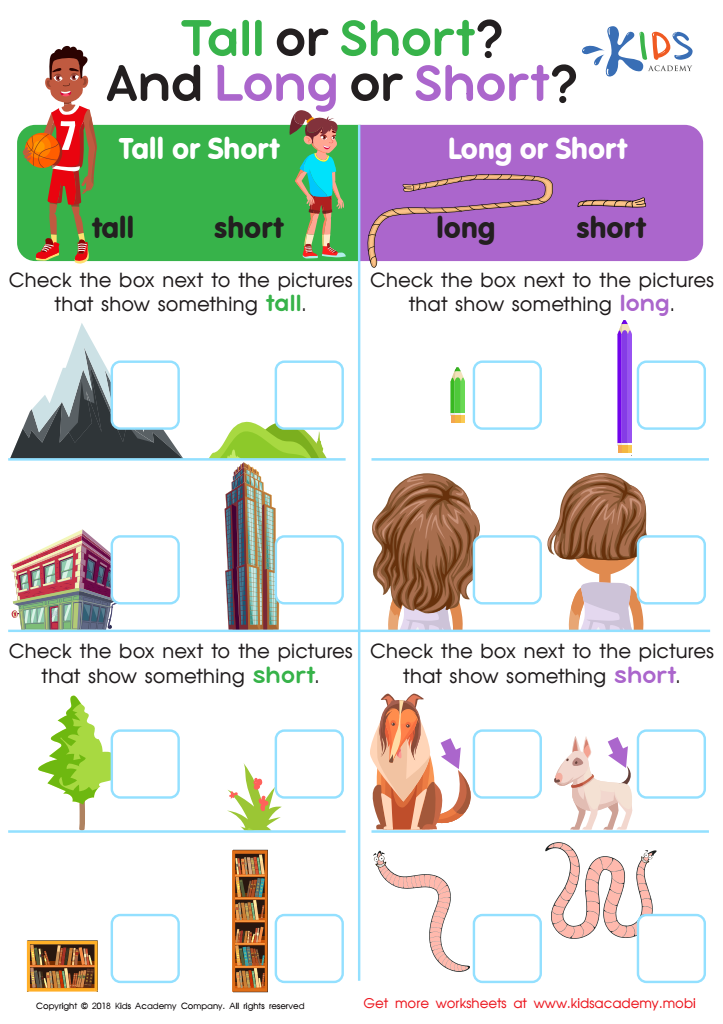

Tall or Short and Long or Short? Worksheet
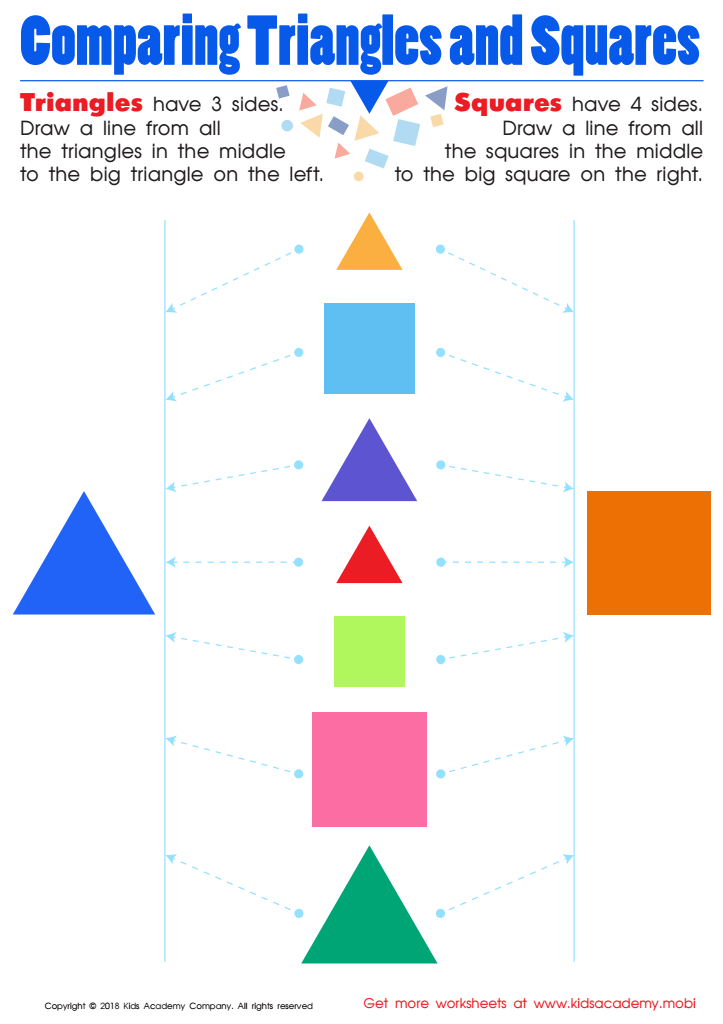

Comparing Triangles Squares Worksheet
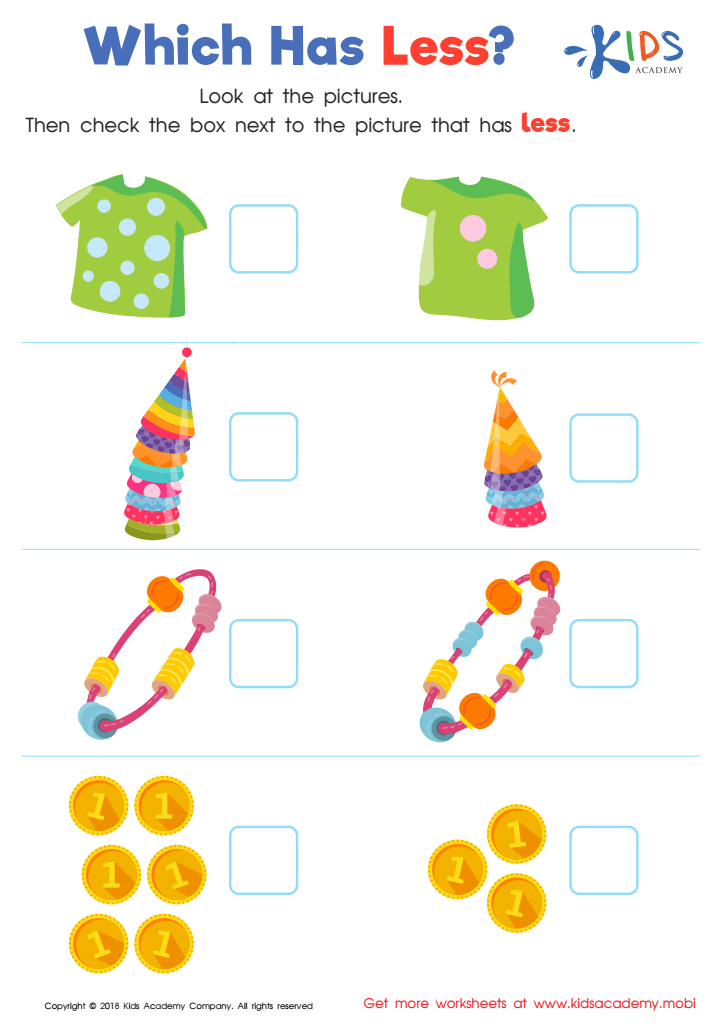

Which Has Less? Worksheet
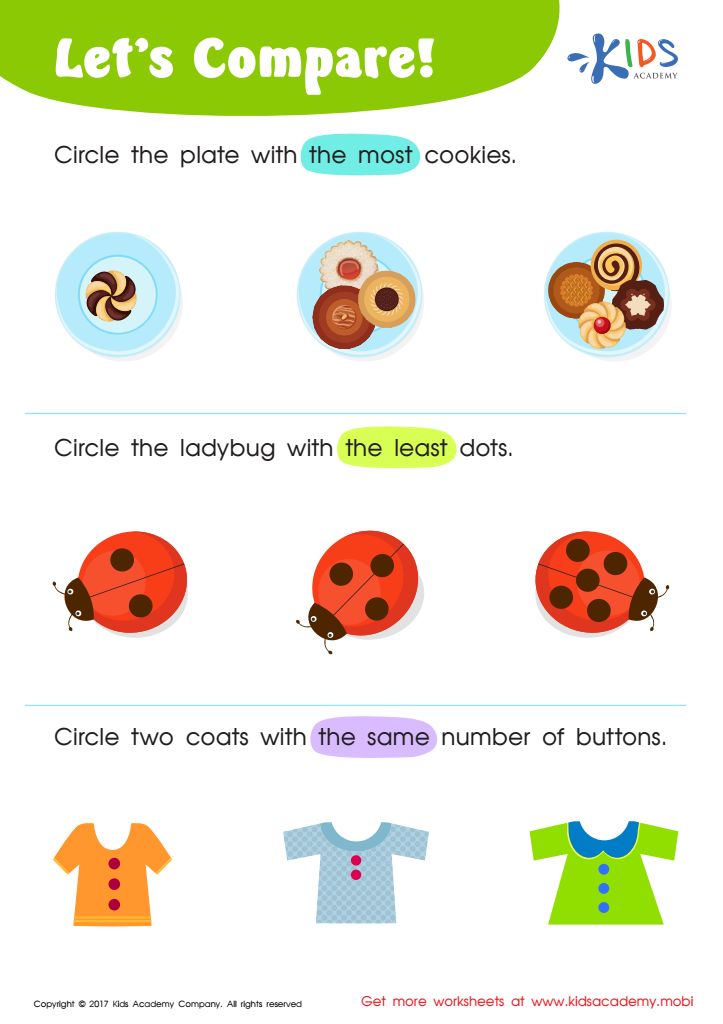

Matching: Classifying Toys by Size Worksheet


Matching: Classifying Toys by Size Worksheet
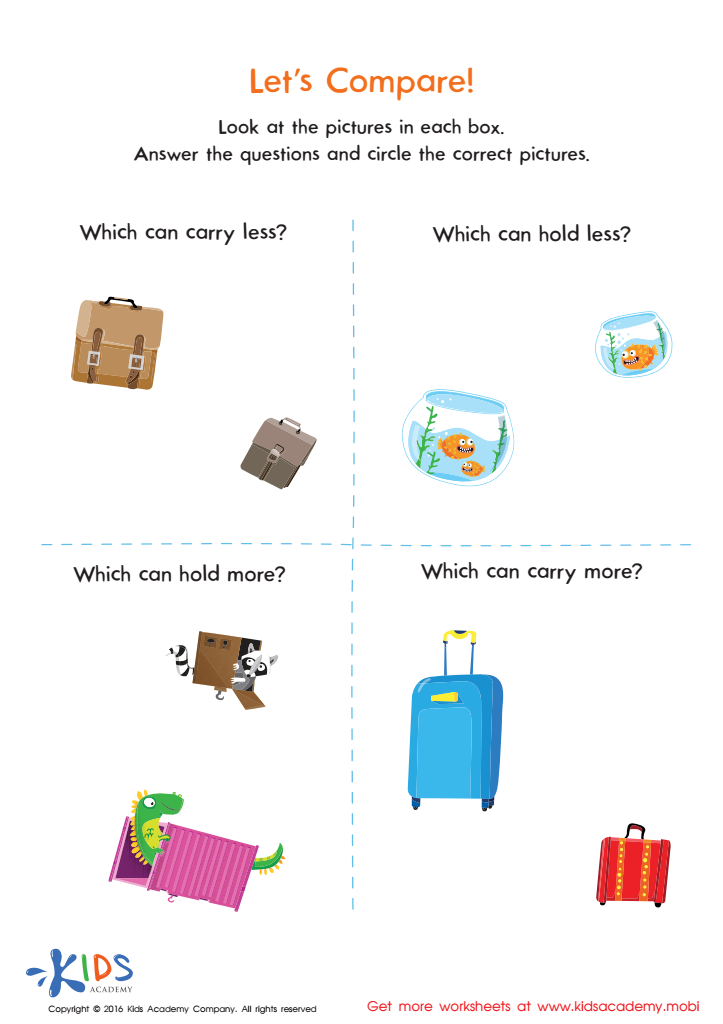

Let's Compare Worksheet: Big or Small
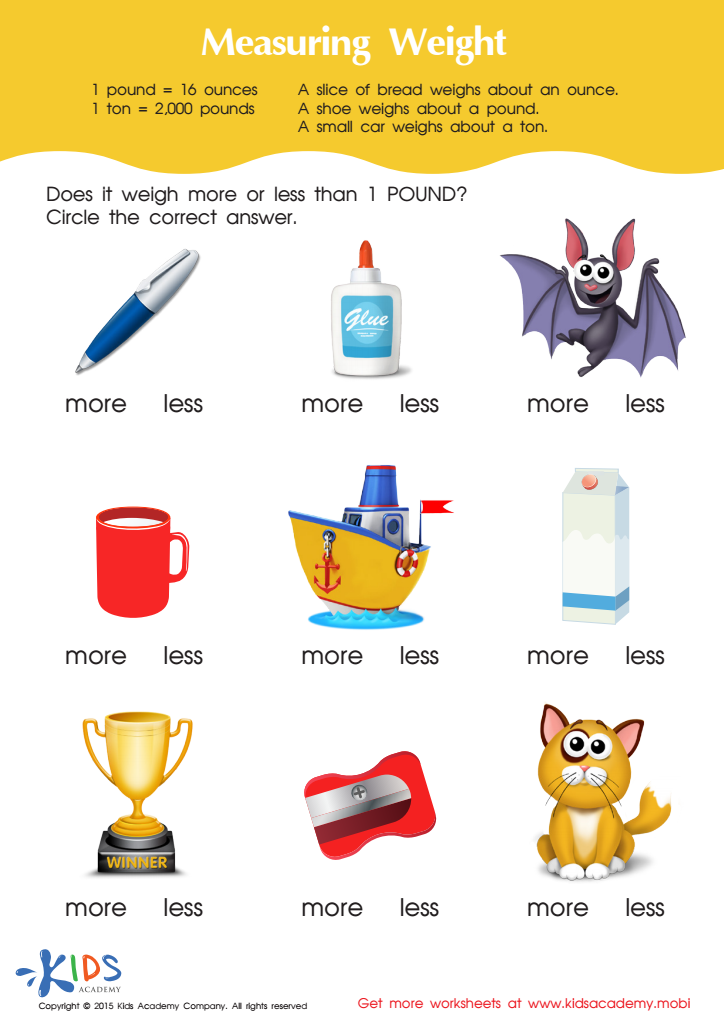

Measuring weight in pounds Worksheet
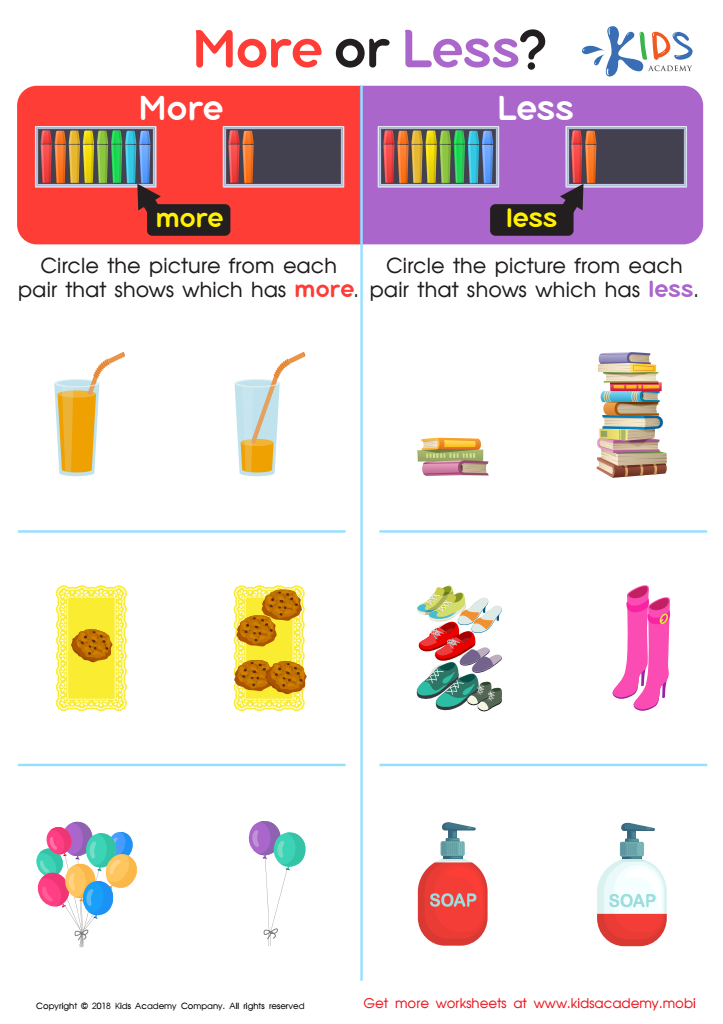

More or Less? Worksheet
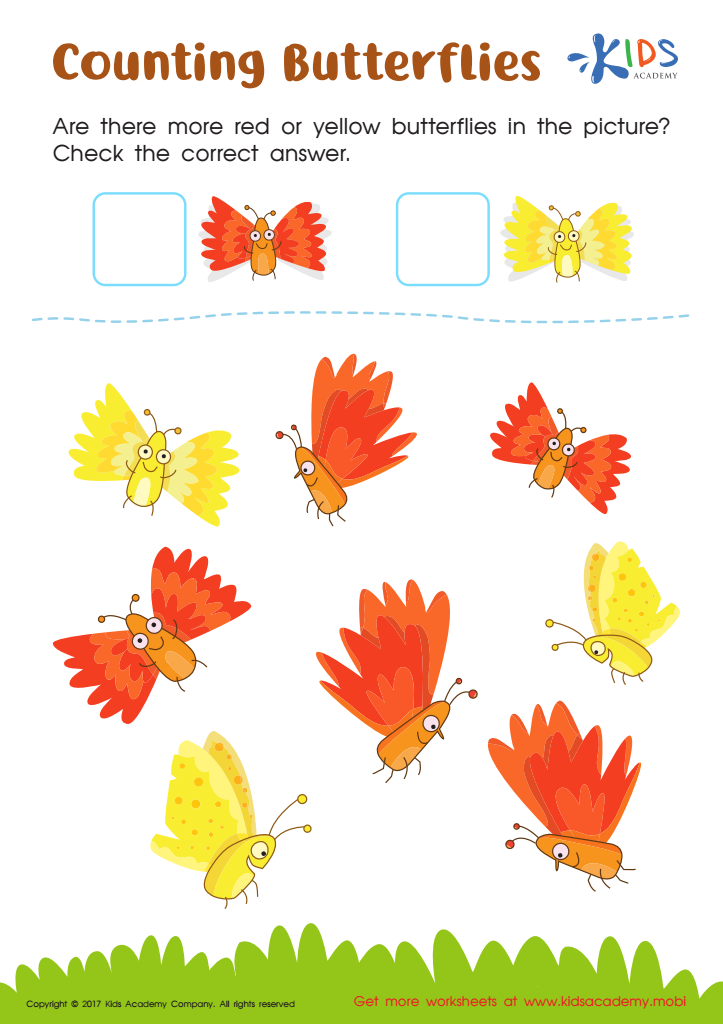

Counting Butterflies Worksheet
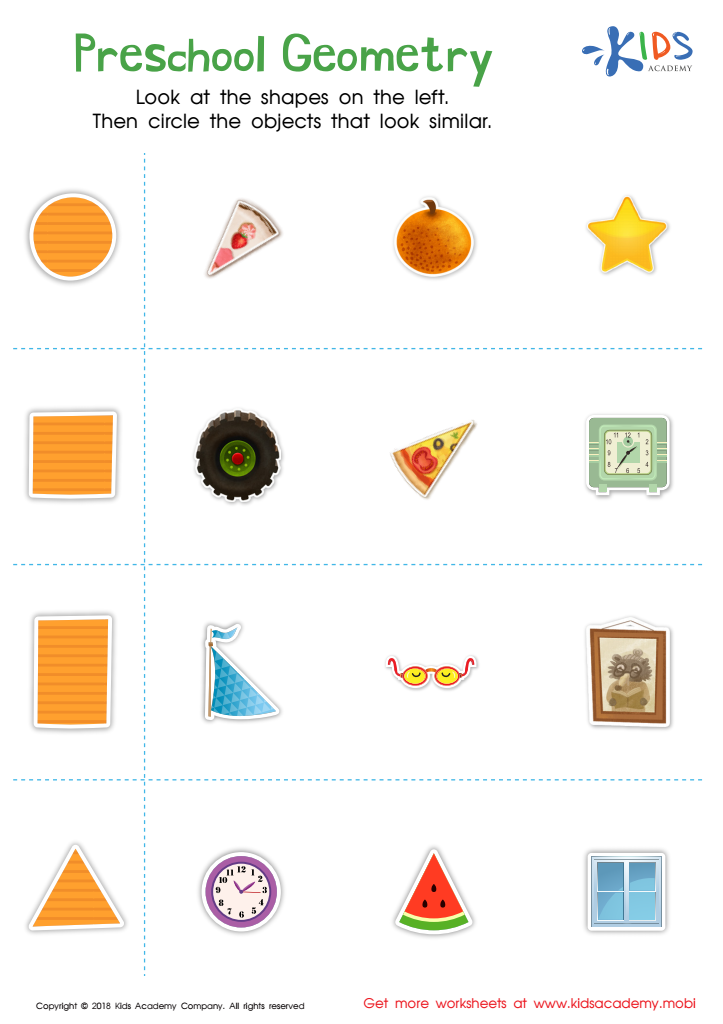

Preschool Geometry Worksheet
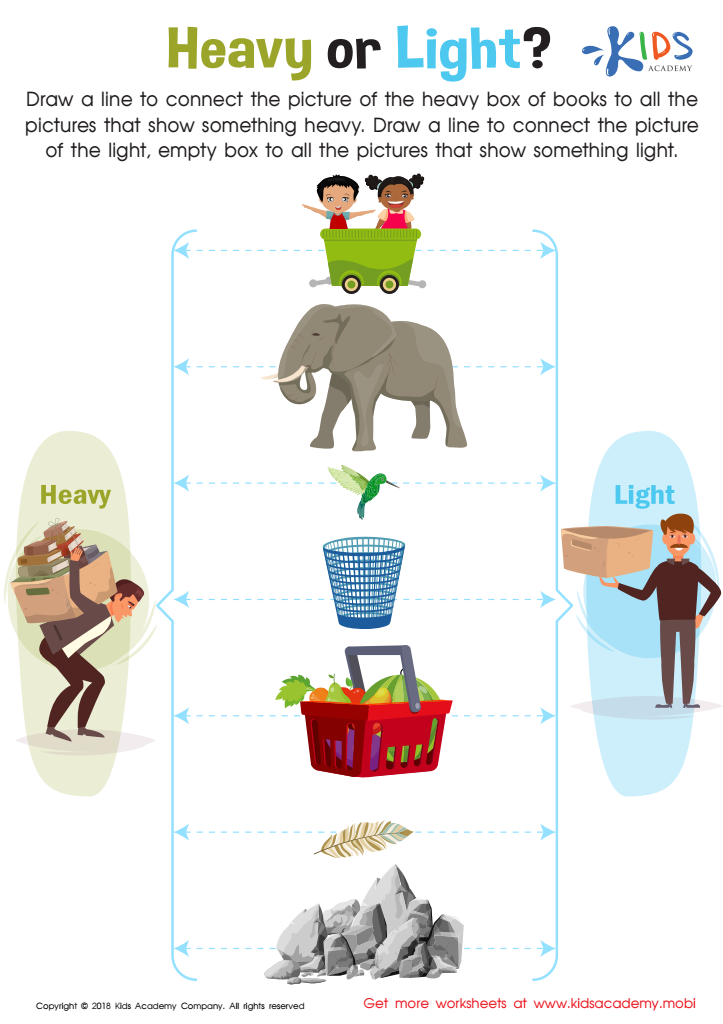

Heavy or Light? Worksheet
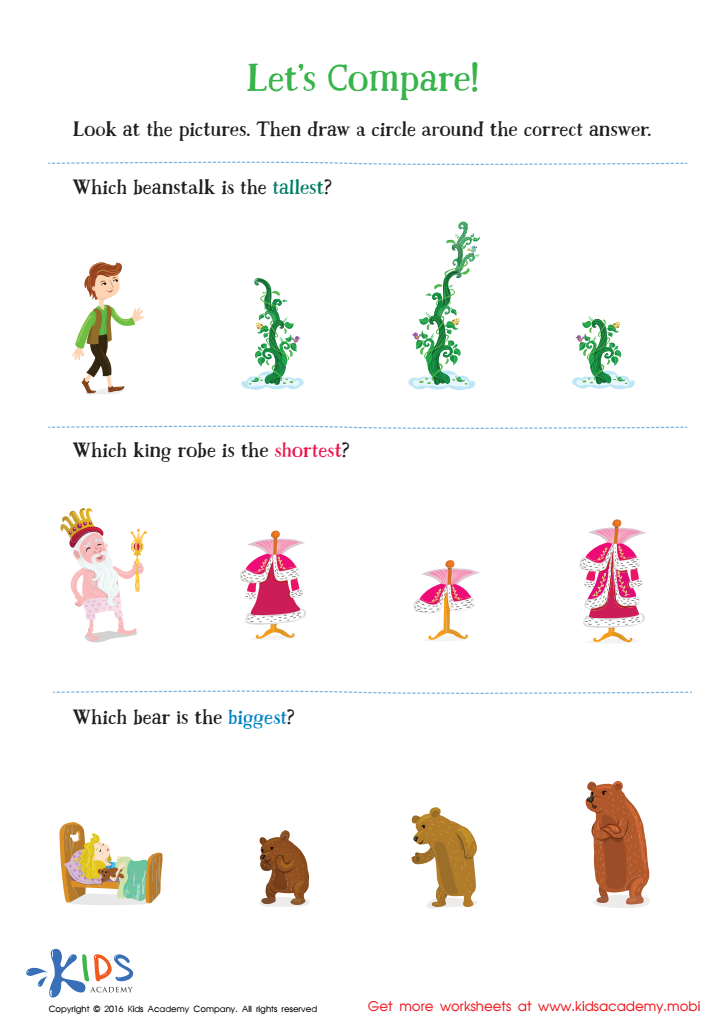

Fairy Tale Worksheet: Let's Compare
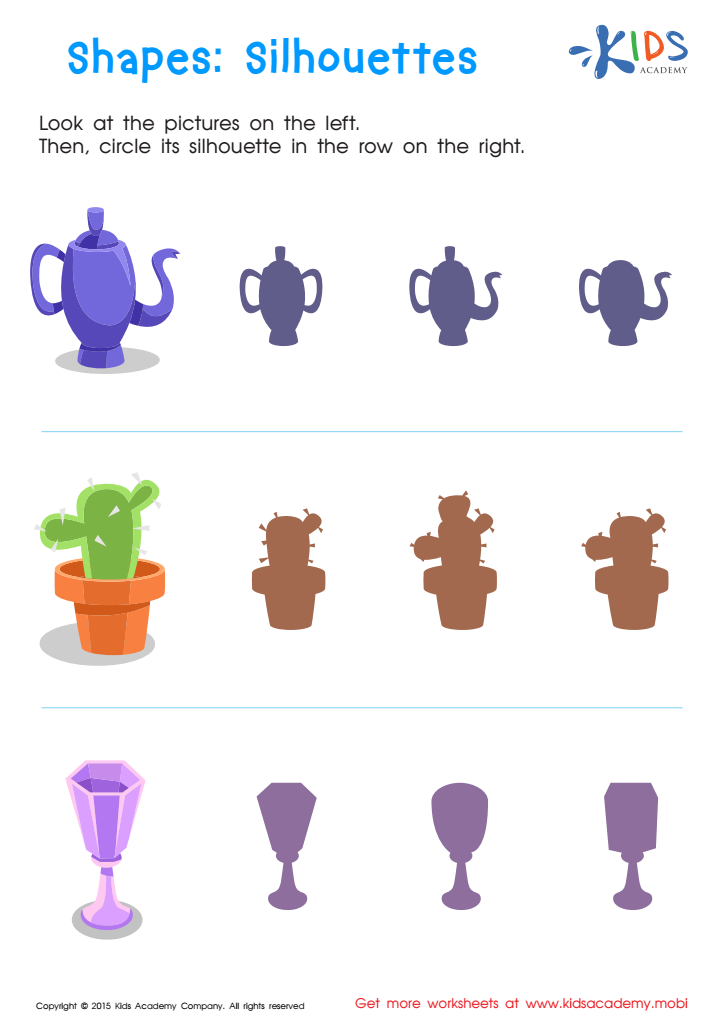

Silhouettes – Shapes Worksheet
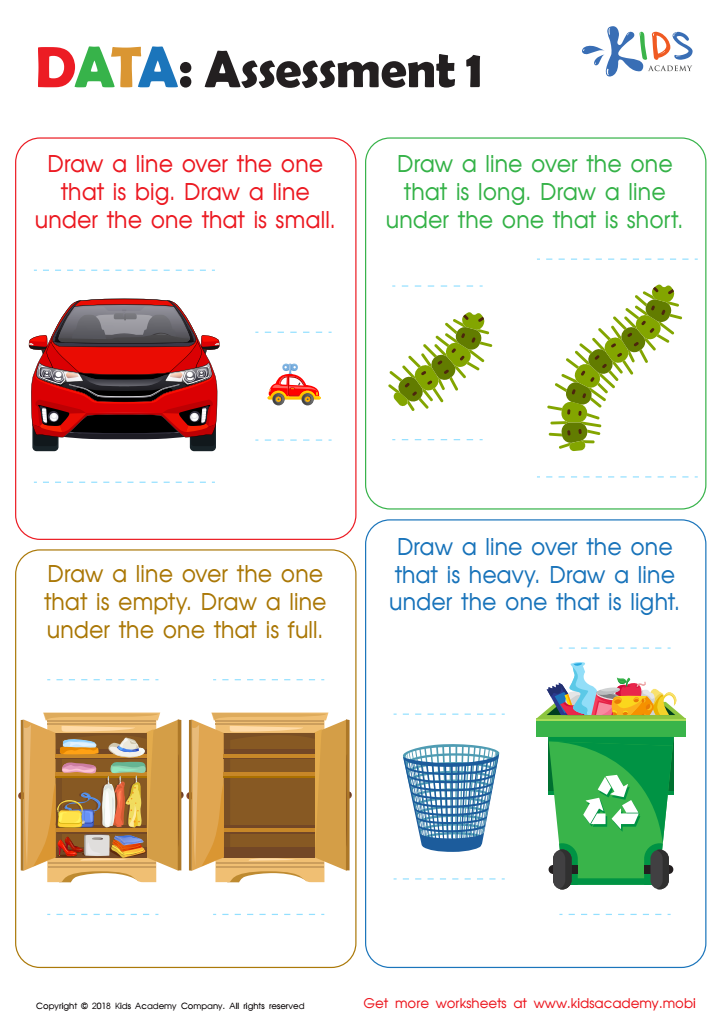

Data: Assessment 1 Worksheet
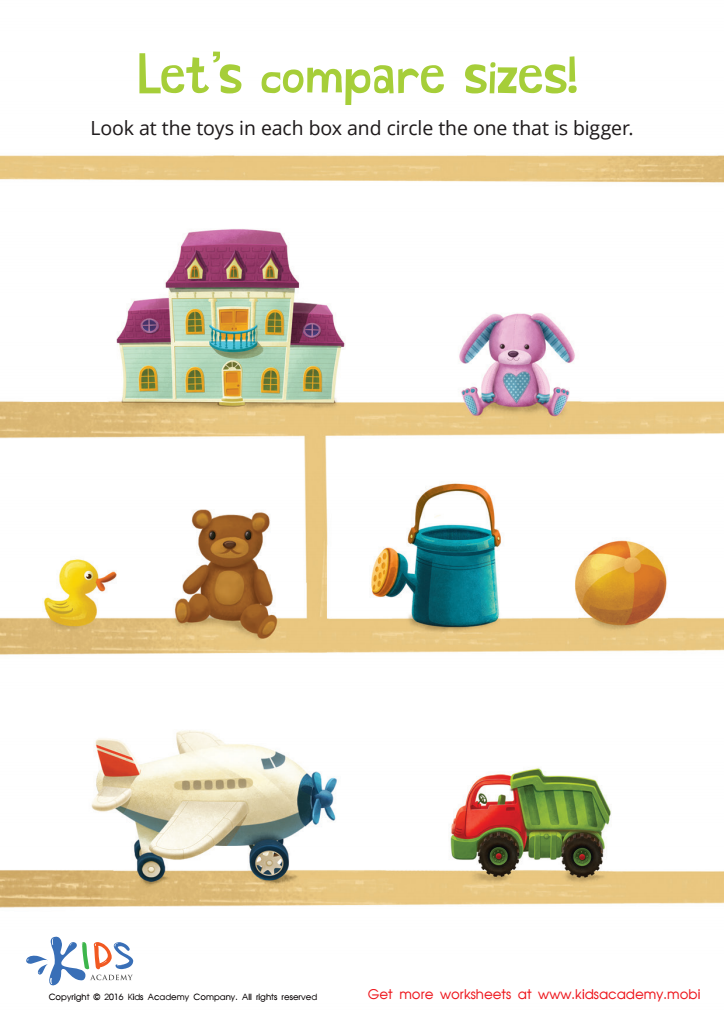

Classifying by Size Sorting Worksheet
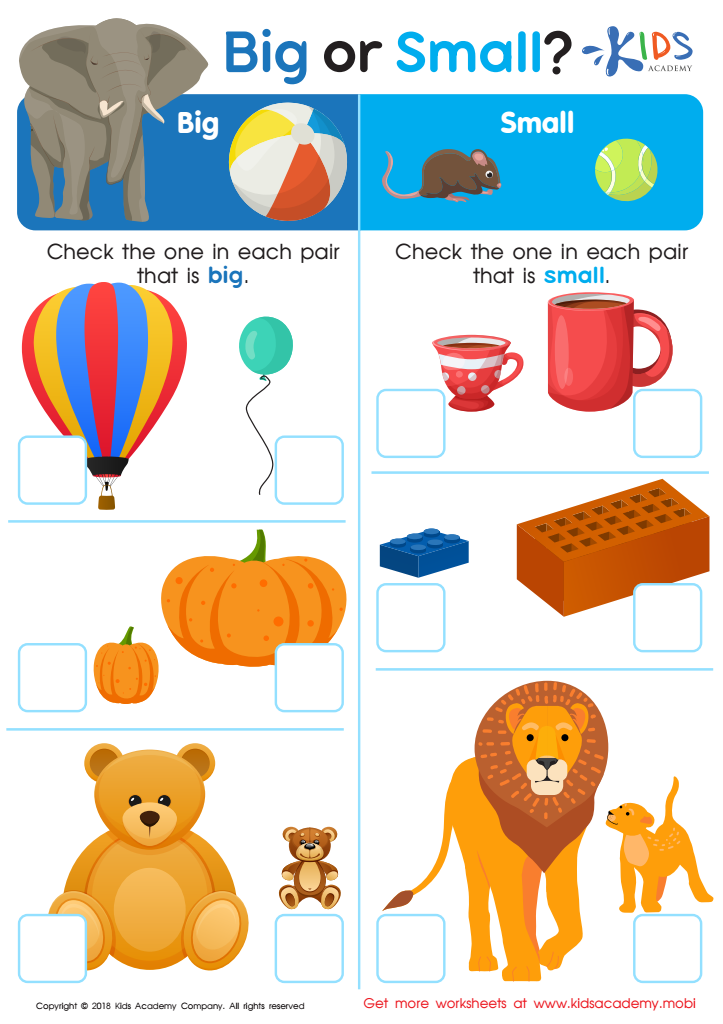

Big or Small? Worksheet
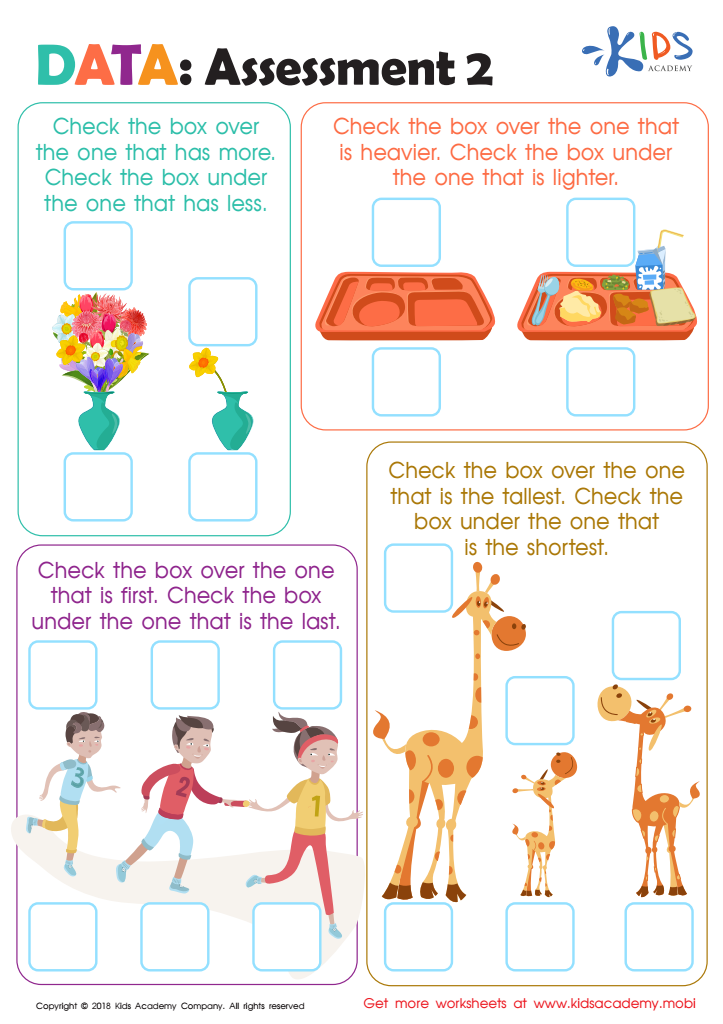

Data: Assessment 2 Worksheet
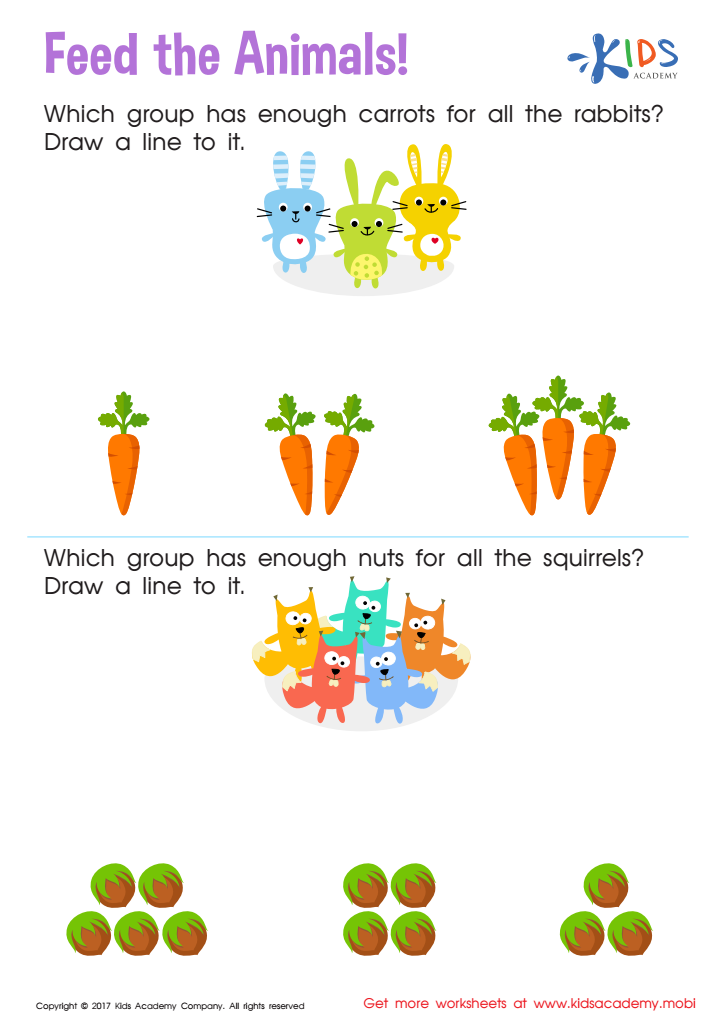

Count and Match: Feed the Animals Worksheet
Parents and teachers should care about the concept of comparison for children aged 3-7 because it plays a critical role in cognitive and social development. At this age, children are naturally curious and are beginning to make sense of the world around them. Introducing comparison helps them understand differences and similarities between objects, concepts, and ideas, which is foundational for early math and literacy skills. For instance, children learn to categorize items, recognize patterns, and develop problem-solving abilities when they compare shapes, sizes, or attributes.
Additionally, comparison affects emotional and social development. Children assess their abilities and experiences against those of peers, which can foster a sense of identity and self-esteem. However, it is essential to guide this process, as unhealthy comparisons can lead to insecurity or jealousy. Teachers and parents can promote positive comparisons that emphasize personal growth rather than competition.
Encouraging discussions about comparisons also builds critical thinking and reasoning skills, inviting children to articulate their thoughts and ideas clearly. Ultimately, understanding comparison equips young children with tools for understanding their environment, enhancing their interpersonal skills, and laying the foundation for lifelong learning.
 Assign to My Students
Assign to My Students






















